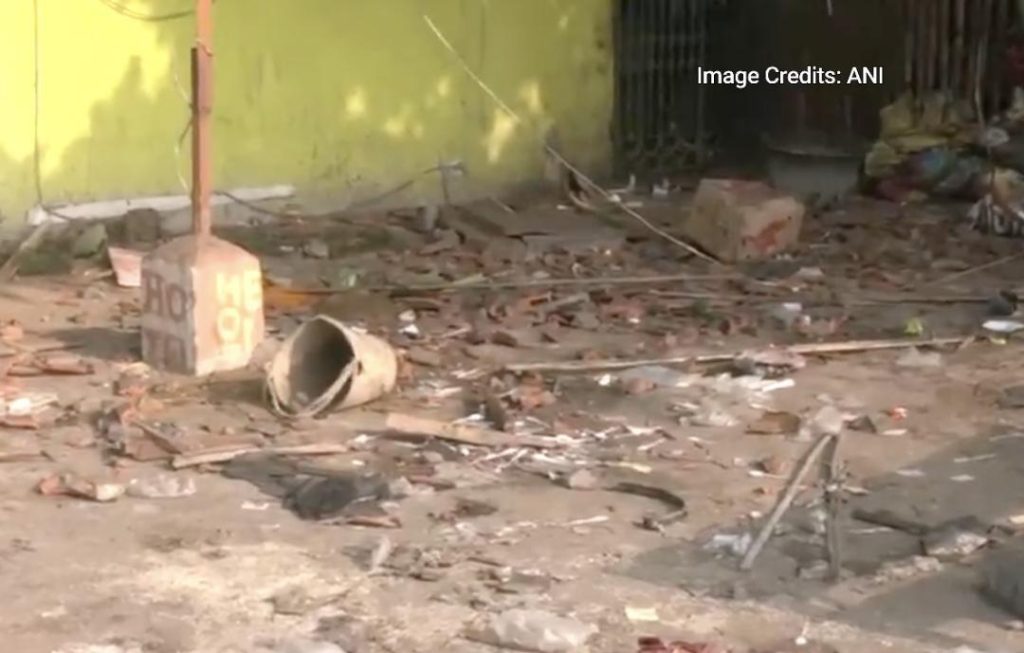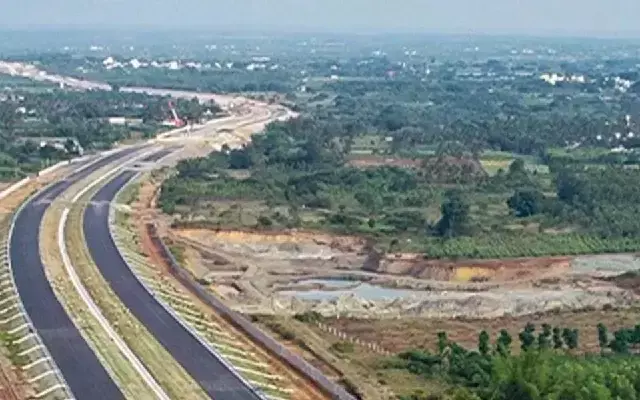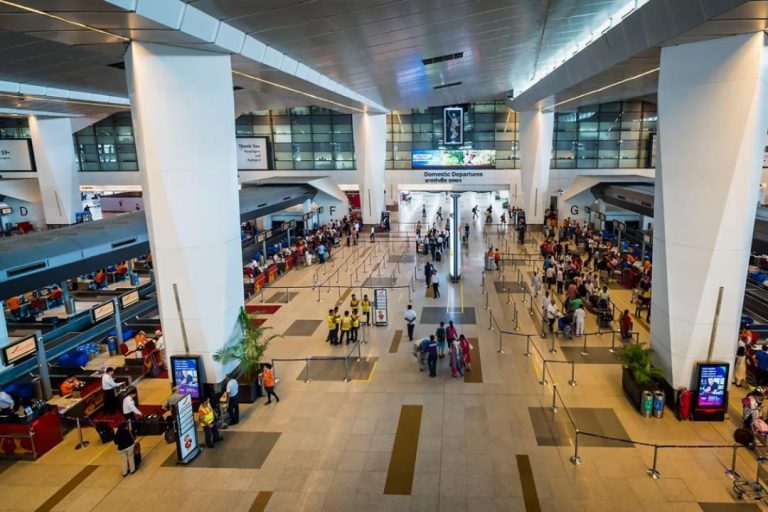
Title: 5,000 Disrupt Services & Pelt Stones at Bengal Railway Station during Protest against Waqf Act
In the midst of ongoing protests against the Waqf Act in West Bengal, a significant disruption was witnessed at the Dhulianganga railway station on Friday. According to reports, nearly 5,000 people gathered at the station, causing severe disruptions to train services. The protesters’ actions led to the blocking of the movement of the Kamakhya-Puri Express, causing delays and inconvenience to passengers.
The Eastern Railways confirmed the incident, stating that the protest started around 1 pm, after which the protesters began pelting stones at the station. A railway guard, who witnessed the chaos, described the scene as “mayhem” and stated that many things were destroyed, including the signal system, which couldn’t be operated due to the unrest.
The protest, which was part of the broader movement against the Waqf Act, aimed to draw attention to the issues faced by the Waqf board and the alleged mismanagement of properties under its jurisdiction. The Act, which was passed in 2013, aimed to streamline the functioning of the Waqf board and provide greater transparency in the management of Waqf properties. However, the protests and disputes surrounding the Act have been ongoing, with many accusing the government of misusing the powers granted to the board.
The incident at the Dhulianganga railway station was the latest in a series of protests and disruptions that have taken place across the state. In recent weeks, protests have been held in various parts of West Bengal, including Kolkata, Asansol, and Siliguri, with protesters demanding the withdrawal of the Waqf Act and the resignation of the Waqf board chairman.
The Waqf board, which is responsible for managing properties donated for religious purposes, has been embroiled in controversy for several years. Critics have accused the board of misusing its powers, misappropriating funds, and failing to provide adequate care and maintenance to the properties under its jurisdiction.
The protests against the Waqf Act have been led by various organizations and individuals, including religious leaders, social activists, and political parties. The protests have been largely peaceful, with protesters resorting to sit-ins, rallies, and other forms of peaceful protest.
However, the incident at the Dhulianganga railway station was different, as protesters resorted to stone-pelting and disrupting train services. The Eastern Railways has condemned the incident, stating that it will not tolerate any form of unrest or disruption to its services.
The incident has raised concerns about the safety and security of passengers and railway employees. The railway authorities have assured that they are taking all necessary measures to prevent such incidents in the future and to ensure the smooth functioning of their services.
In conclusion, the incident at the Dhulianganga railway station is a stark reminder of the ongoing protests and disputes surrounding the Waqf Act in West Bengal. While the protests have been largely peaceful, the disruption of train services and stone-pelting is a worrying development that highlights the need for greater dialogue and understanding between the government and the protesters.
As the situation continues to unfold, it is essential for all parties involved to remain calm and peaceful, and to work towards finding a resolution to the disputes surrounding the Waqf Act. The government must also take concrete steps to address the concerns of the protesters and to ensure that the Waqf board functions in a transparent and accountable manner.
Sources:






